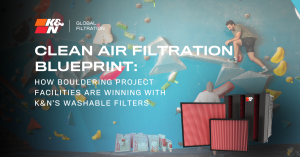Exploring the Significant Impact of Air Filtration Systems Across Every Part of the Data Center
In the complex ecosystem of data centers, air filtration systems are emerging as a fundamental component, pivotal to maintaining operational efficiency and reliability. This essential system often reduced to a line item on a budget sheet, plays a key role in safeguarding data centers from a myriad of airborne contaminants that can significantly impair equipment performance and longevity. Let’s explore the significant impact of air filtration systems across various sections of a data center, highlighting its indispensability in ensuring seamless operations.
1. High upon the Rooftop
Perched atop the data center, rooftop air handling units are a critical component of building cooling systems and serve as the front line in the battle against external pollutants. Here, air filtration systems stand guard, filtering out a barrage of contaminants before they infiltrate the building. The filters in these RTU systems are the first line of defense, ensuring that cooling mechanisms breathe in purity and exhale efficiency.
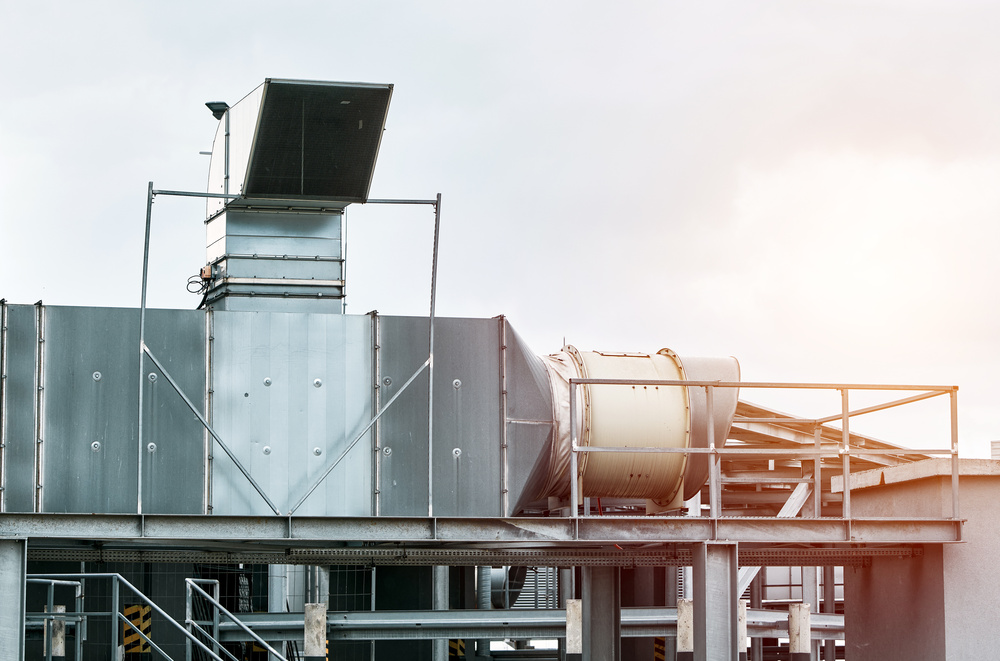
The stakes are high; a study by the Uptime Institute revealed that implementing efficient air filtration systems can lead to increased energy savings, significantly impacting operational costs. Additionally, by removing dust and impurities, these systems contribute to a 5-10% improvement in Power Usage Effectiveness (PUE), further translating into reduced energy consumption and environmental impact. It’s a double whammy of cost savings and sustainability.
2. Inside the Office Space
Beneath the roof lies the heartbeat of the data center—the people. The correlation between air quality and productivity is well-documented, with the Environmental Protection Agency (EPA) noting that indoor air can be two to five times more polluted than outdoor air, a statistic that amplifies the need for impeccable air filtration systems in workspaces.

But the impact goes beyond compliance. A study by the Lawrence Berkeley National Laboratory underscores this connection. They found that improved indoor air quality led to an increase in worker productivity, which for a company with 1,000 employees translates to an annual benefit of over $500,000. Additionally, it resulted in a reduction in employee sick leave, further contributing to cost savings and improved morale.
3. The Data Vault
Within the core of the data center, amidst the silicon and circuits, the air holds a silent sway over destiny. The data vault demands an air quality that brooks no compromise. Here, minuscule microns wield the power to disrupt and degrade, posing threats to data integrity. A single dust particle smaller than 3 microns, smaller than the width of a human hair, can cause permanent damage to sensitive server components, leading to data loss and hardware failure.
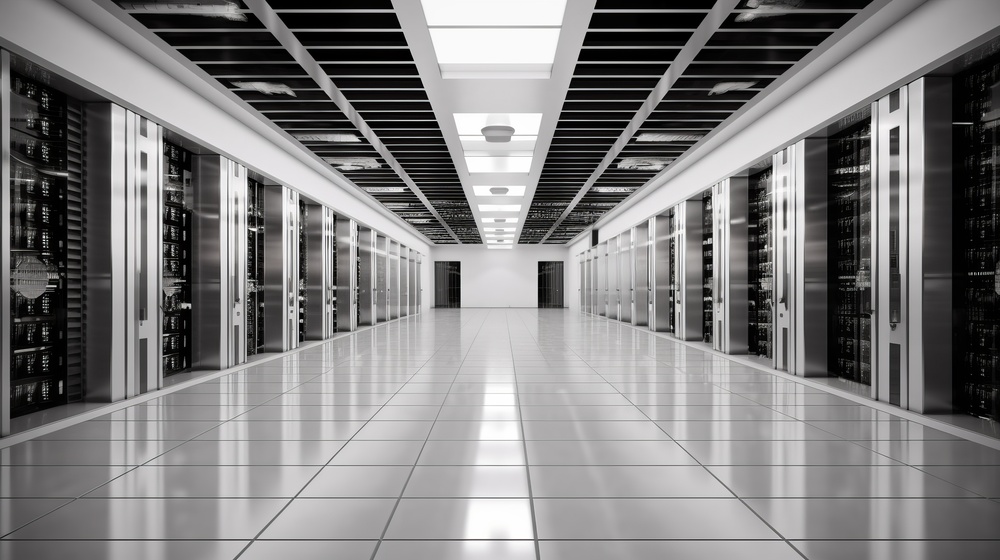
This reality demonstrates the critical role of rigorous air filters within the walls of the data hall. It’s not an option, but a requirement to protect and preserve, necessitating relentless vigilance and regular maintenance of filters to ensure complete protection.
Implementing efficient air filtration in data centers can reduce hardware failures due to contamination, translating to improved data security, uptime, and overall system reliability, safeguarding the very assets entrusted to our care.
Uptime Institute Global Data Center Survey 2022
4. The Electrical and Power Room
The electrical room, the pulse of a data center, thrives on the purity of its surroundings. Like the data vault, seemingly innocuous particulate matter can precipitate chaos within the intricate web of power systems. Data center outages can cost thousands of dollars per minute. As Ponemon found, a single unplanned data center outage can cost an average of $7,900 per minute, a stark reminder of the economic imperative to maintain clean air zones around critical power infrastructure.
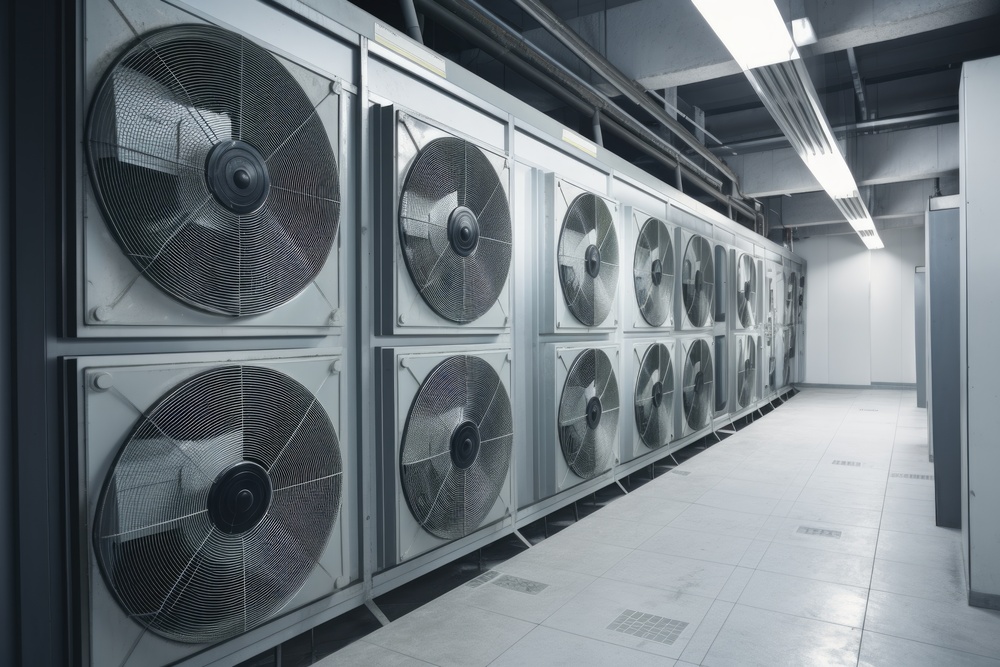
This statistic resonates beyond the data center walls, reflecting the broader vulnerability of modern society to power disruptions. From hospitals relying on life-saving equipment to financial institutions processing critical transactions, clean air ensures the smooth flow of electricity that underpins our connected society.
Through meticulous air filtration, data center operators can avert the specters of overheating and failure, safeguarding the intricate web of connections that power operations.
5. Modular Data Centers
Here, the air itself presents a formidable foe, teeming with dust, sand, and other environmental nasties that threaten the delicate dance of computing power. Unlike their urban counterparts, these outposts cannot rely on frequent filter replacements or readily available technicians. The air filtration systems guarding these digital outposts must be more than just adaptable; they need to be tenacious and enduring.
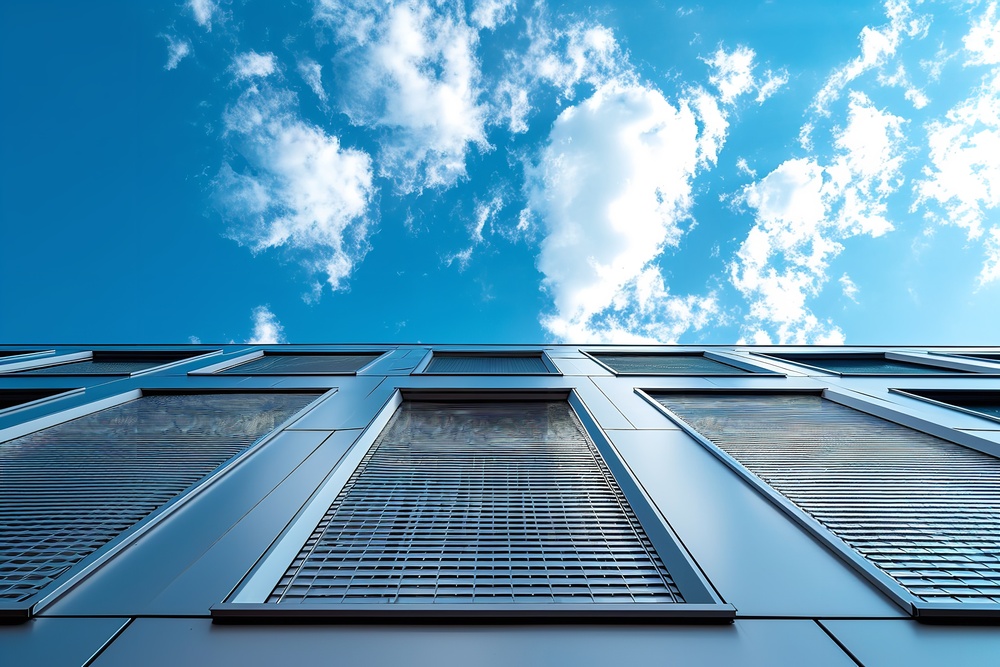
Imagine a desert sun beating down, its relentless heat warping the air. Or picture a windswept mountain peak, blasting the system with chilling winds and airborne debris. This is the harsh reality for edge data center air filtration. Yet, through innovative technologies like self-regulating filters and remote monitoring systems, these unsung heroes rise to the challenge. They not only neutralize contaminants but also maintain optimal airflow, ensuring efficient cooling even in the face of adversity.
Studies by the Uptime Institute reveal that improper air filtration can contribute to higher energy consumption in data centers. In remote locations, where every watt counts, this inefficiency becomes a critical concern. By delivering both superior filtration and exceptional energy efficiency, long-lasting air filters ensure reliable computing power without sacrificing sustainability.
How can K&N Make a Difference For Your Air Filtration Systems?
K&N Global Filtration is transforming the data center landscape with cutting-edge industrial air filtration solutions, setting a new standard for operational efficiency and sustainability. Unlike conventional single-use filters that contribute to environmental waste, K&N has offers The Original Red Washable, Reusable Filter™, a new approach with washable and reusable industrial air filters, designed to last years.
K&N’s air filtration systems technology, engineered for optimal airflow and minimal restriction, reduces energy consumption at the fan level in data centers. This leads to significant energy savings and a swift ROI by reducing the frequency of filter replacements, lowering operational costs, and minimizing the carbon footprint—all leaps toward sustainable data center management. With a variety of sizes and MERV ratings that adhere to UL 900, ULC S111, ASHRAE 52.2, and ISO 16890 standards, K&N caters to diverse data center needs.
K&N’s sustainable air filtration solutions also represent a commitment to environmental stewardship and operational excellence. By drastically reducing waste and enhancing energy efficiency, K&N empowers data centers to operate more sustainably, without sacrificing performance. This commitment to innovation and sustainability positions K&N as a leader in air filtration, driving the data center industry toward a greener future.
The story of commercial air filtration unfolds as a testament to its critical role, surpassing its deceptive simplicity as a budgetary footnote to become a cornerstone of efficiency, sustainability, and reliability.
Contact us today and see if our sustainable air filtration solutions can help defend your Data Center air and your Data Center bottom line.



